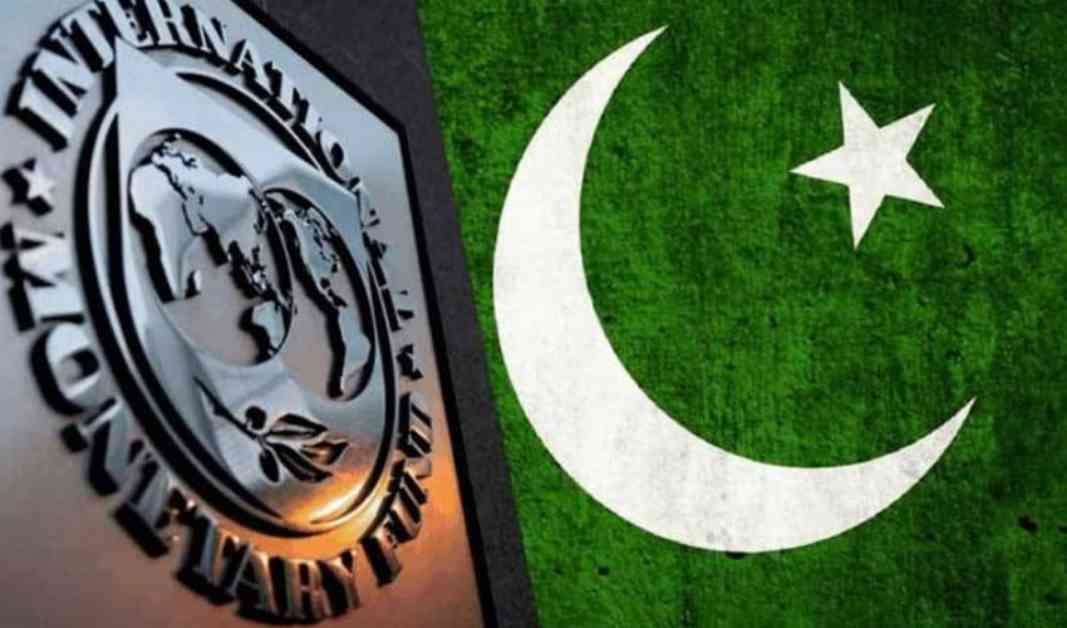The International Monetary Fund (IMF) has recently made a decision that could have significant implications for Pakistan’s economic landscape. Despite Pakistan’s efforts to provide financial relief to consumers by proposing a reduction in the General Sales Tax (GST) on electricity bills, the IMF has rejected this proposal. This development has been reported by Express News, highlighting the challenges that Pakistan faces in navigating its economic reforms.
Negotiations between Pakistan and the IMF have hit a roadblock as the global lender also turned down Pakistan’s request to extend the winter relief package for the industrial and agricultural sectors throughout the entire fiscal year. This denial adds to the complexity of the ongoing discussions between the two parties, particularly regarding measures aimed at reducing circular debt in the energy sector.
In an attempt to address the issue of circular debt, Pakistan has put forward a plan involving securing a loan of Rs1.25 trillion from commercial banks at an interest rate of 10.8%. While an agreement on this loan has been reportedly finalized, the IMF’s approval remains pending. Furthermore, Pakistan has proposed providing tax relief to various sectors, including real estate, property, beverage, and tobacco industries. If these proposals are accepted by the IMF, it could lead to a significant reduction in tax burdens for these sectors.
Looking ahead to the next budget, there are discussions about lowering tax burdens on salaried individuals, a move that could potentially ease the financial strain on this demographic. Additionally, there is a plan in place to collect Rs250 billion in taxes from different sectors, including retail. However, the final approval for all these proposed measures rests on the IMF’s decision.
Challenges and Opportunities in Negotiations
The recent developments in the negotiations between Pakistan and the IMF highlight the challenges that Pakistan faces in securing financial relief for its consumers while implementing crucial economic reforms. The rejection of the proposal to reduce the GST on electricity bills underscores the complexities of balancing fiscal responsibilities with the need to stimulate economic growth. As discussions continue, both parties must navigate these challenges to reach a mutually beneficial agreement.
In the midst of these challenges, there are also opportunities for Pakistan to showcase its commitment to addressing key issues such as circular debt in the energy sector. By presenting a comprehensive plan that includes securing a substantial loan from commercial banks, Pakistan demonstrates its willingness to take decisive action. The potential tax relief for various sectors further underscores Pakistan’s efforts to create a more sustainable and equitable economic environment.
As negotiations progress, it will be crucial for both Pakistan and the IMF to find common ground that allows for sustainable economic growth while addressing the immediate needs of consumers and industries. The decisions made in the coming days will have far-reaching implications for Pakistan’s economic future, making it essential for both parties to collaborate effectively and make informed choices.
In conclusion, the recent developments in the negotiations between Pakistan and the IMF underscore the complexities and opportunities inherent in shaping economic policies that balance financial stability with growth objectives. By addressing key issues such as circular debt and proposing tax relief for various sectors, Pakistan demonstrates its commitment to fostering a more resilient and inclusive economy. The road ahead may be challenging, but with strategic collaboration and thoughtful decision-making, Pakistan can navigate these challenges and emerge stronger on the other side.









